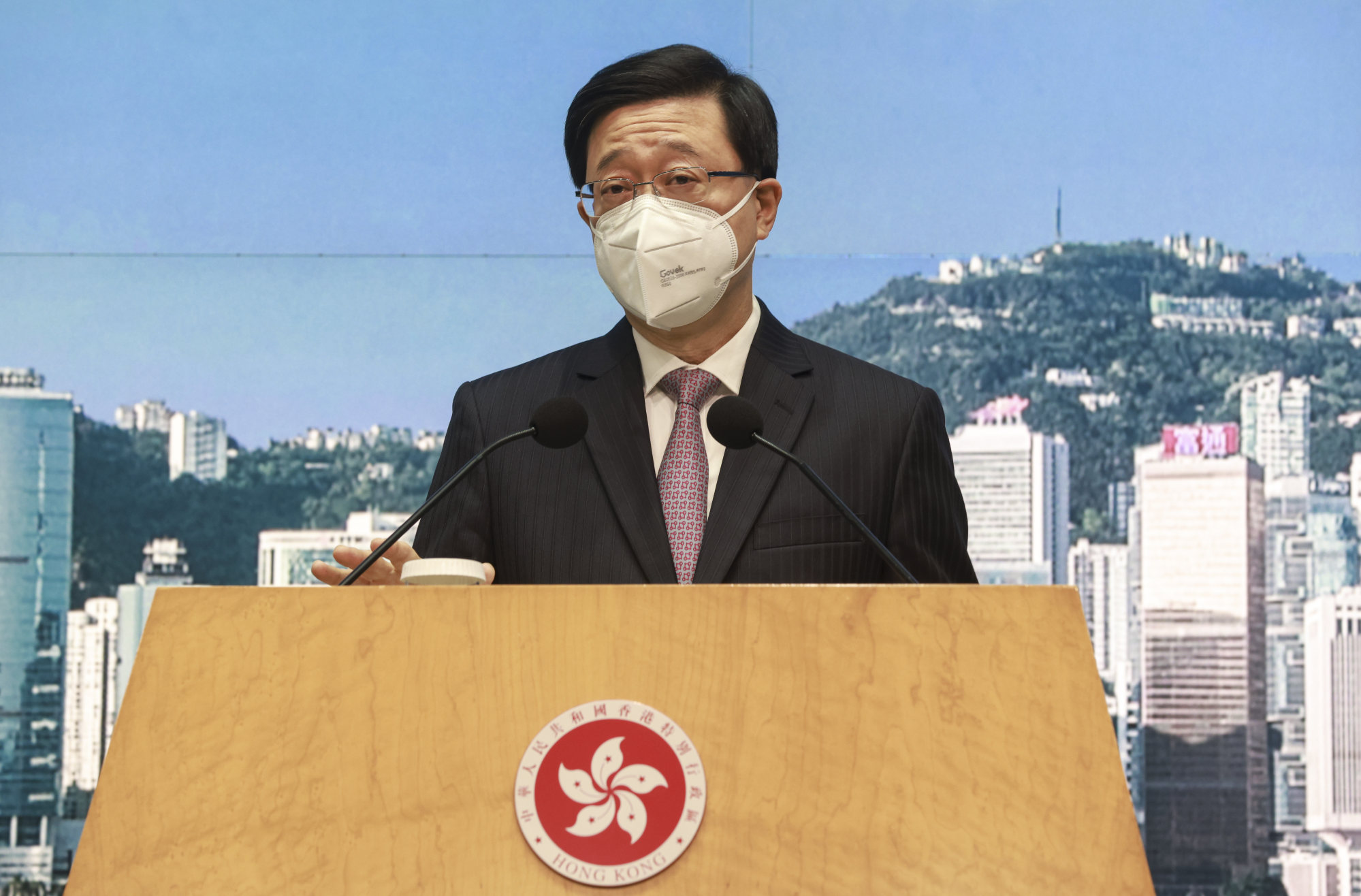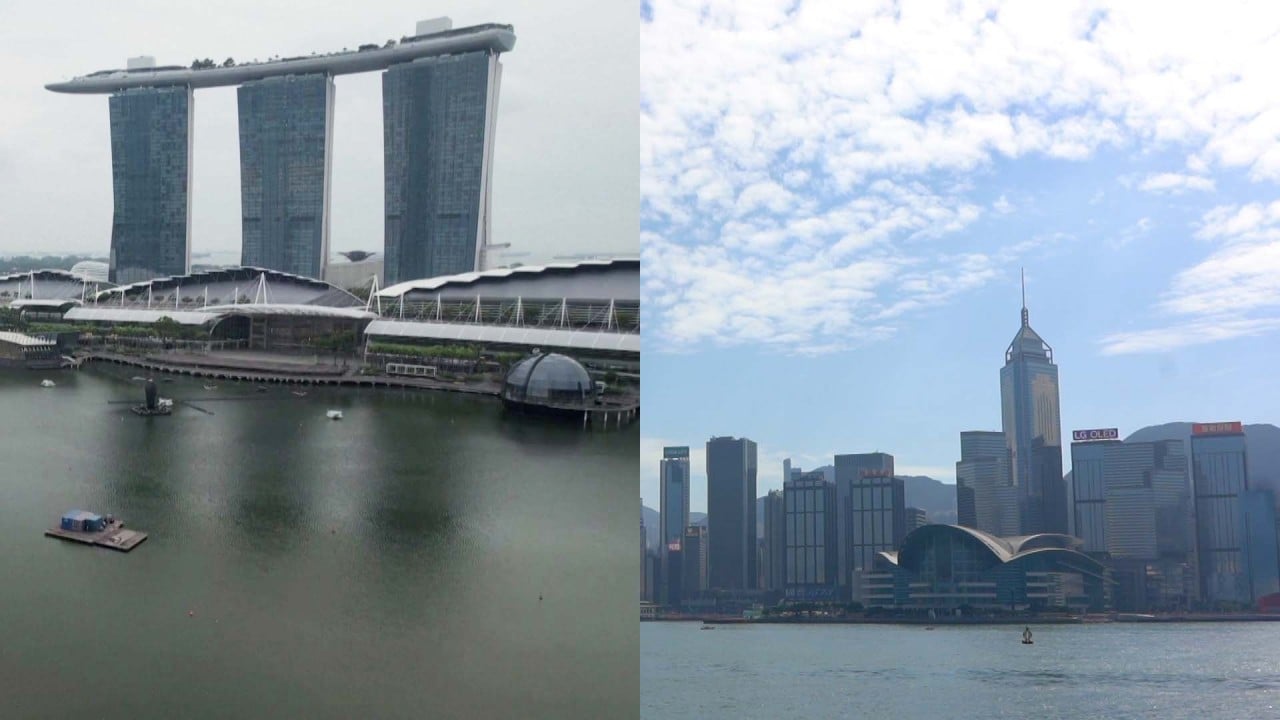
Exclusive | Global war for talent: Hong Kong to refund extra taxes for foreign property owners taking up residency and launch new schemes to entice top-notch overseas graduates
- Government insiders say tax concessions will be available to non-locals who have owned property for three or more years
- City leader John Lee also expected to offer 18-month job-hunting visa for graduates from top universities covered under government’s talent list
Foreigners who have owned property in Hong Kong for three or more years will get their extra stamp duty refunded if they take up permanent residency as part of a global talent drive the city leader will announce in his policy address next week, the Post has learned.
Chief Executive John Lee Ka-chiu is also expected to introduce a new 18-month visa to attract graduates from renowned universities with no conditions attached as part of the plan to stanch a brain drain worsened by the Covid-19 border restrictions of recent years.
Local employers will also be given a freer hand to hire overseas talent without first proving a lack of suitable candidates already in the city, according to government insiders.
The slew of strong incentives to entice overseas professionals is expected to form a key plank of Lee’s maiden policy address, set to be delivered on Wednesday, with multiple sources suggesting tax incentives could be offered to non-locals to help recruit and retain talent in the city.

Currently, non-local residents need to pay 30 per cent stamp duty on home purchases, doubling what residents who are not first-time buyers pay.
Under a plan being mapped out for the policy address, foreign homebuyers will be allowed to have the extra stamp duty refunded once they become permanent residents, a status they can apply for after residing in the city for seven years. But one source said non-locals would need to have owned the flat for three or more years.
The New People’s Party had earlier suggested overseas talent working in Hong Kong for three years be exempted from the buyer’s stamp duty if they opted to purchase their first flat here.
The Democratic Alliance for Betterment and Progress of Hong Kong had also urged for property related tax concessions for talent, in addition to the government providing affordable flats for overseas professionals to rent.
According to official data released in August, a total of 113,200 people had left the city amid an emigration wave over the past year, contributing to a record 1.6 per cent drop in the population and marking the second straight annual decline in numbers.
113,200 residents leave Hong Kong in 12 months, census figures show
Among the proposals Lee will set out next week, the Post learned that the chief executive could cut the red tape on foreign hiring and allow local companies to hire talents from outside Hong Kong without first proving they could not attract suitable candidates within the city.
Eligibility will be limited to 13 specific fields covered by the government’s “talent list”, which include asset management, actuaries, innovation and technology, data science, as well as marine engineering and creative industries.
Under the current general employment policy, companies seeking to hire someone from overseas must prove the candidate has skills or knowledge not available in Hong Kong and thus their work experience cannot be matched locally.
It is also understood that the government will roll out a new scheme to offer an 18-month visa to graduates from renowned universities, allowing them entry into Hong Kong to seek employment.
The Quality Migrant Admission Scheme, one of Hong Kong’s current visa schemes, allows eligible workers to remain in the city for 24 months without holding employment. But candidates must fulfil several prerequisites, as well as pass points-based tests, and are subject to a quota limit of 4,000 as of last year.
In previous years, the quota was set at lower levels, with the Immigration Department saying only 1,709 people were admitted via the scheme in 2020, an increase from 874 and 555 accepted in 2019 and 2018, respectively.
An alternative option for talent seeking work visas in Hong Kong is the Admission Scheme for Mainland Talents and Professionals, with applicants only eligible if they receive a confirmed offer of employment and hold a position that cannot be readily taken up by another candidate from the local workforce.
The proposed 18-month visa could match the approach used in the United Kingdom, which stipulated areas of talent shortage and rolled out a work visa scheme for “High Potential Individuals”. The UK policy is open to graduates from the top 50 universities worldwide, granting them two years to seek employment.
Can Hong Kong win the talent race with Singapore? Cut red tape, experts say
Another country hoping to attract global talent, Germany, launched the Skilled Immigration Act in 2020. The policy allows university graduates and anyone who has completed qualified vocational training to apply for a six-month residency permit.
As part of the scheme, employers are not required to check whether suitable applicants are already available in Germany or the European Union before offering a job to a qualified overseas professional.
Alexa Chow Yee-ping, the managing director of executive search agency ACST Consulting, said she was doubtful about the effectiveness of offering 18-month visas to prospective talent.
“If you are a graduate from a top overseas university, you should not have a big problem getting job offers, sometimes even before you have graduated,” she said. “They might not need a 18-month visa to fly to Hong Kong to look for jobs.”
Chow said offering tax concessions would be much more attractive to talent considering working in Hong Kong.
“One of the biggest problems for overseas people coming to work in Hong Kong is the high cost of housing. If you could offer to ease the stamp duty for them when they buy a flat here, it would be more useful in retaining them,” she said.
100 days in office: Hong Kong’s John Lee offers peek into coming policy address
Professor Heiwai Tang, of the University of Hong Kong, urged authorities to take a cautious stance toward offering tax incentives to non-locals, as it could exacerbate inequalities in the city.
The economic scholar welcomed the prospect that the government could ease requirements for local companies looking to recruit from overseas, but said talent was more likely to respond to job offers than visas allowing them to seek employment in Hong Kong.
“Foreign and mainland Chinese talents will be attracted by jobs, job prospects, or companies, not by the city’s talent policies per se,” he said. “But those are long-term problems that take months if not years to solve.”
In August, Lee vowed to fight for and poach global talent, declaring a renewed push for the city to win in innovation and technology with new initiatives to be revealed in his maiden policy blueprint in October.
Additional reporting by Jeffie Lam




